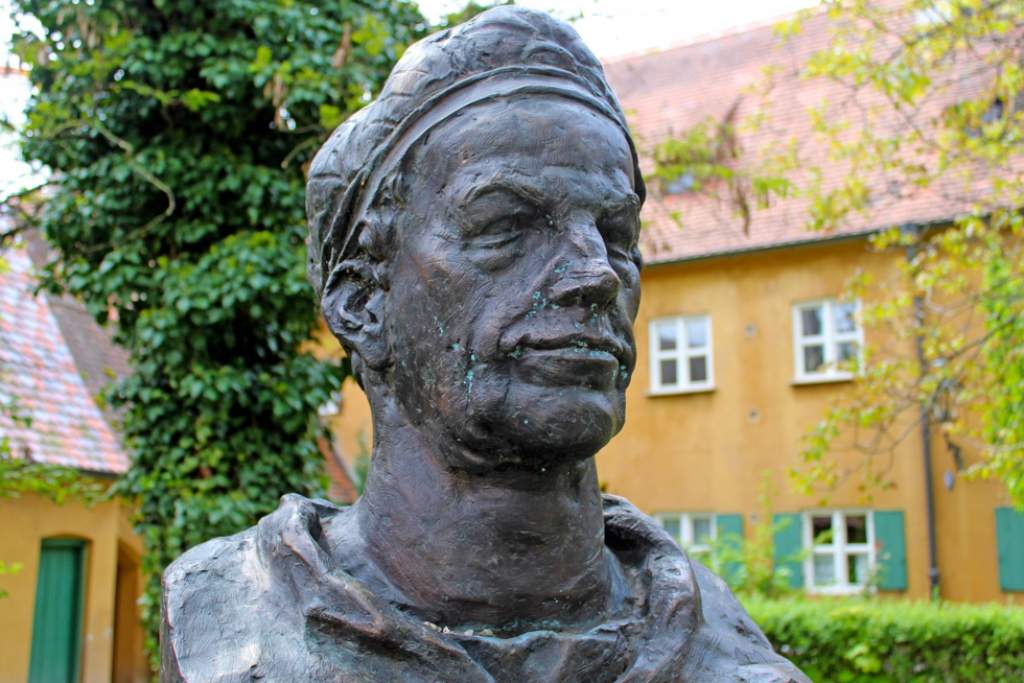
When it came to wealth in the Medieval Era, the history books would make you think that only noble families held wealth. Whilst this is mostly true, there was one family that was the exception to this rule: the Fugger family.
The personal bankers and financiers of dukes, princes, kings, emperors and popes, the Fugger family amassed huge wealth, controlling a large swathe of the European economy during the 16th century and had a near total monopoly on the European copper trade.
Indeed, they were so wealthy that they literally bought their way into nobility!
Founding
Today’s Fugger family can trace their ancestry back to the early 14th century. Though the exact date is unknown, historians believe that Johann Fugger (sometimes spelled Fucker depending on the source) was born in the village of Graben around 1315.
A weaver by trade, Johann married Anna Maria Meissner sometime before 1350, when his only child, Hans, was born also in the village of Graben.
Following in his father’s footsteps by becoming a weaver, Hans moved from Graben to the nearby Imperial Free City of Augsburg in 1367 to further his career as a weaver in the Weaver’s Guild – the most powerful merchant guild in all of Augsburg.
Not long after arriving in the city, Hans married Klara Widolf, the daughter of a master weaver, and became an Augsburg citizen. In 1368, the couple had their first child, a daughter they called Anna. The couple later went on to have another daughter, Kunigunde, and a son, Hans.
However, tragedy struck the family in either 1380 or 1382 (sources differ) when Klara fell ill and passed away.
As was expected of him at the time, Hans married Elisabeth Gfattermann, also the daughter of a master weaver, but one who was significantly wealthier and a member of the Augsburg City Council, then the most prestigious role in the city.
The couple had their first child, a son, in 1394, who they called Andreas, and two more sons, Michael and Peter, would follow soon after – the latter of whom would unfortunately die in infancy. Despite this tragedy, a fourth son, Jakob, was born in 1398.
By 1396, Hans was one of the richest men in Augsburg, thanks to his keen business sense and combining the role of weaver with that of a merchant, thus increasing his profits considerably.
When Hans died in 1408, Andreas, Michael and Jakob took control of the family business and the family only continued to get richer, with the three brothers at one point being Augsburg’s three largest tax payers.
Though the family was wealthier than it had ever been, the death of Michael Fugger in 1418 due to a plague outbreak caused the family to split into two – one headed by Andreas and the other by Jakob.
Fugger of The Deer
Following the split, Andreas became the richer of the two brothers owing to the double-entry bookkeeping that he’d learned in Venice as a young man and his trading of Asian rugs – then unheard of in Europe at the time.
Using his great wealth, Andreas bought vast estates across Swabia to compliment his mercantile empire, earning him the nickname of “Andreas the Rich” – a name many in Augsburg still know him by!
Fugger of The Lily
Jakob Fugger “The Rich”
Fuggerei
Though Augsburg had yielded one of the richest men in history, the city also had a large amount of extreme poverty – where the poorest of the poor in Augsburg could barely afford to put a roof over their heads, let alone food on the table.
Wanting to use his money to help ease the problem, Jakob began buying up parts of Augsburg in 1514. That same year, he contracted architect Thomas Krebs to design a social housing complex he called the Fuggerei.
Construction began two years later in 1516, and the original 52 houses were completed in 1523. Further expansions in 1880 and 1923 brought the total number of houses up to 67 with 147 apartments.
Though Augsburg has endured numerous regional wars, two World Wars, disease, famine and political upheaval, the Fuggerei still stands, making it the oldest social housing complex in the world.
Still charging a nominal annual rent of €0.88 (equivalent to one Rhenish guilder), the Fugger Family still run the Fugger Charitable Trust – the charity set up by Jakob Fugger to maintain the Fuggerei.
Interestingly, Franz Mozart – the great-grandfather of famed composer Wolfgang Amadeus Mozart – lived in the Fuggerei between 1681 and 1694. A plaque on the building he once lived in commemorates this.
